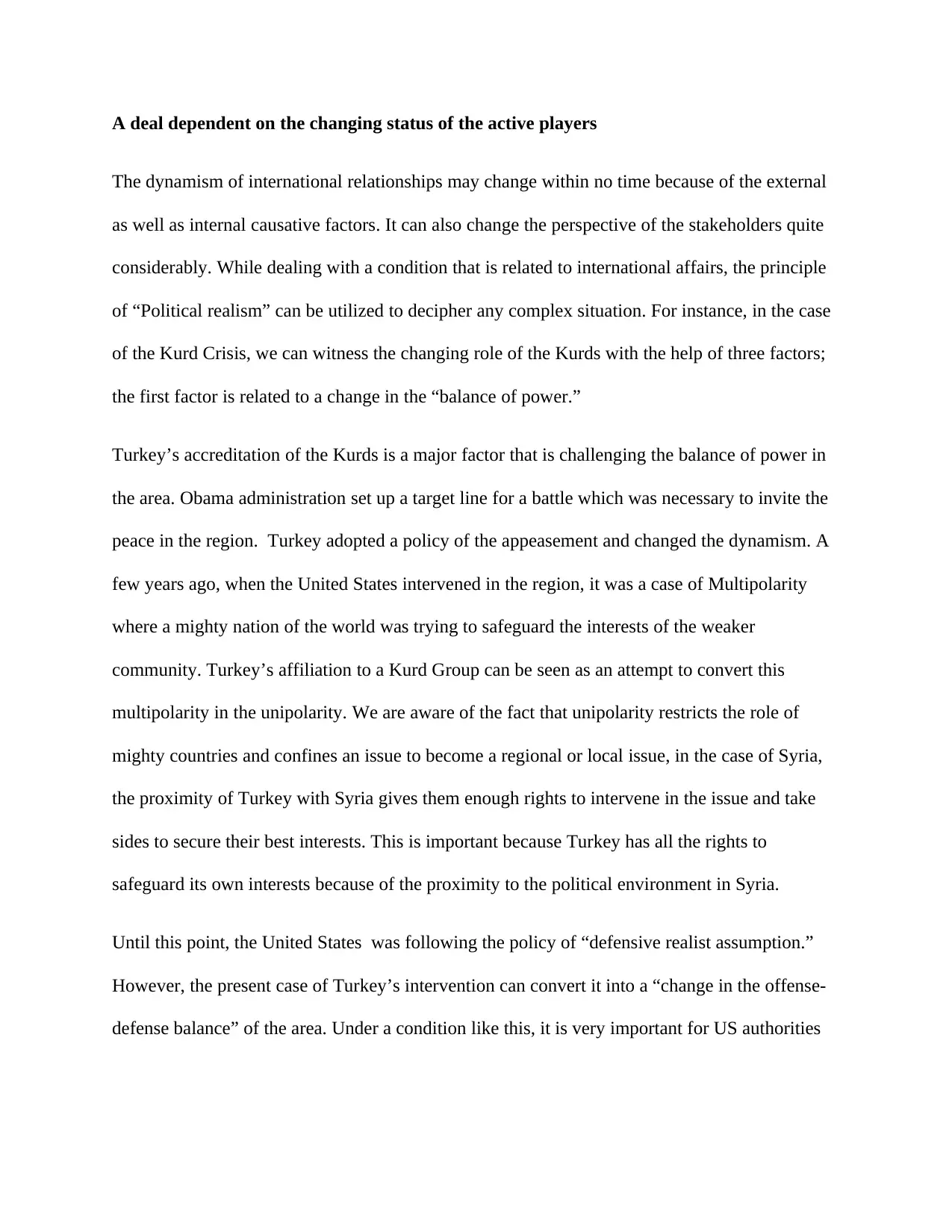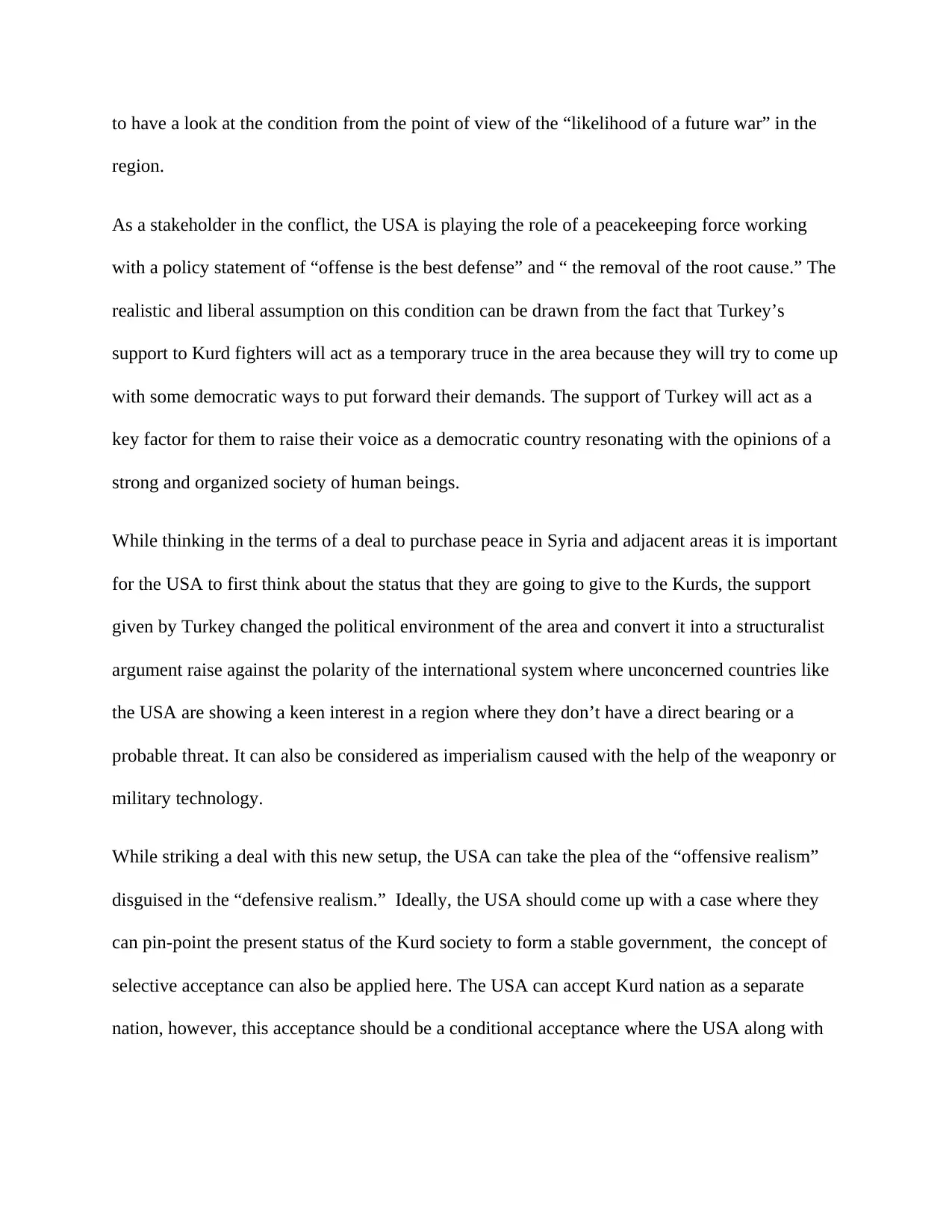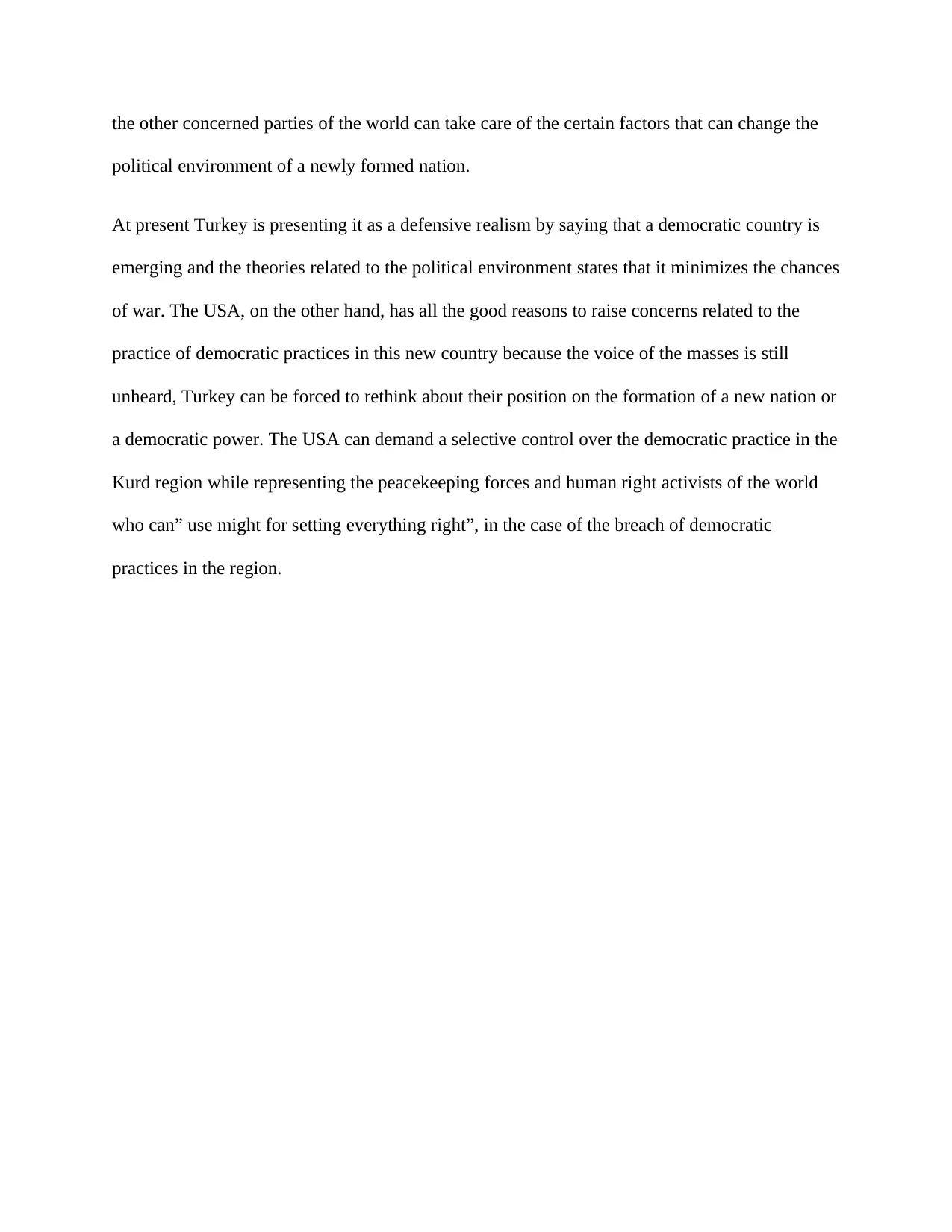Aysenur Gunakan - International Relations Case Study: The Kurd Crisis
VerifiedAdded on 2022/09/09
|3
|882
|16
Case Study
AI Summary
This case study examines the complex Kurd crisis in Syria, focusing on the shifting dynamics between the Kurds, Turkey, and the United States. The analysis applies the principle of "Political Realism" to understand the changing balance of power, particularly in light of Turkey's involvement and the US's evolving role. The paper explores the implications of Turkey's support for the Kurds, examining how it might shift the conflict from multipolarity to unipolarity, and the potential impact on the USA's involvement. It considers the interplay of "defensive realism" and "offensive realism" in the context of the conflict. The study also discusses the potential for a deal to achieve peace, considering the status of the Kurds and the need for a stable government, while also addressing the potential for the USA to influence the democratic practices in the Kurd region, emphasizing the importance of peacekeeping forces and human rights.
1 out of 3




![[object Object]](/_next/static/media/star-bottom.7253800d.svg)